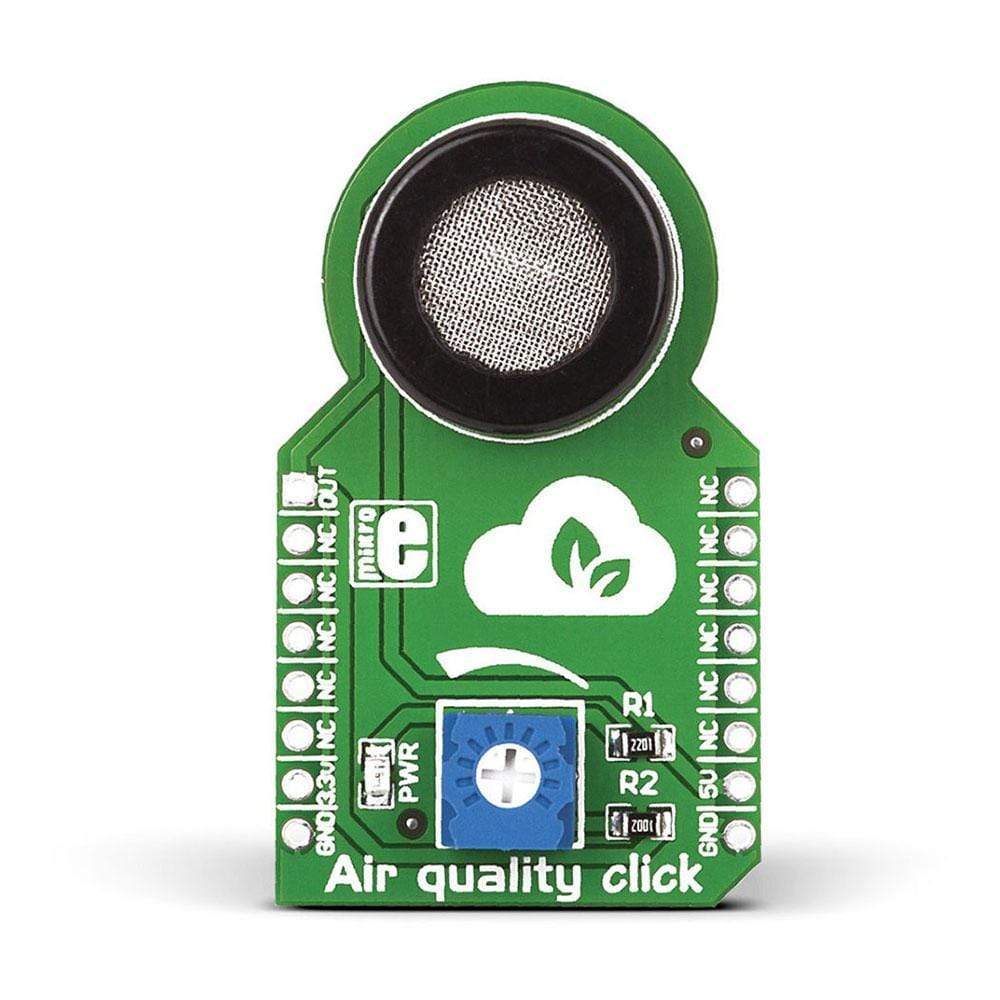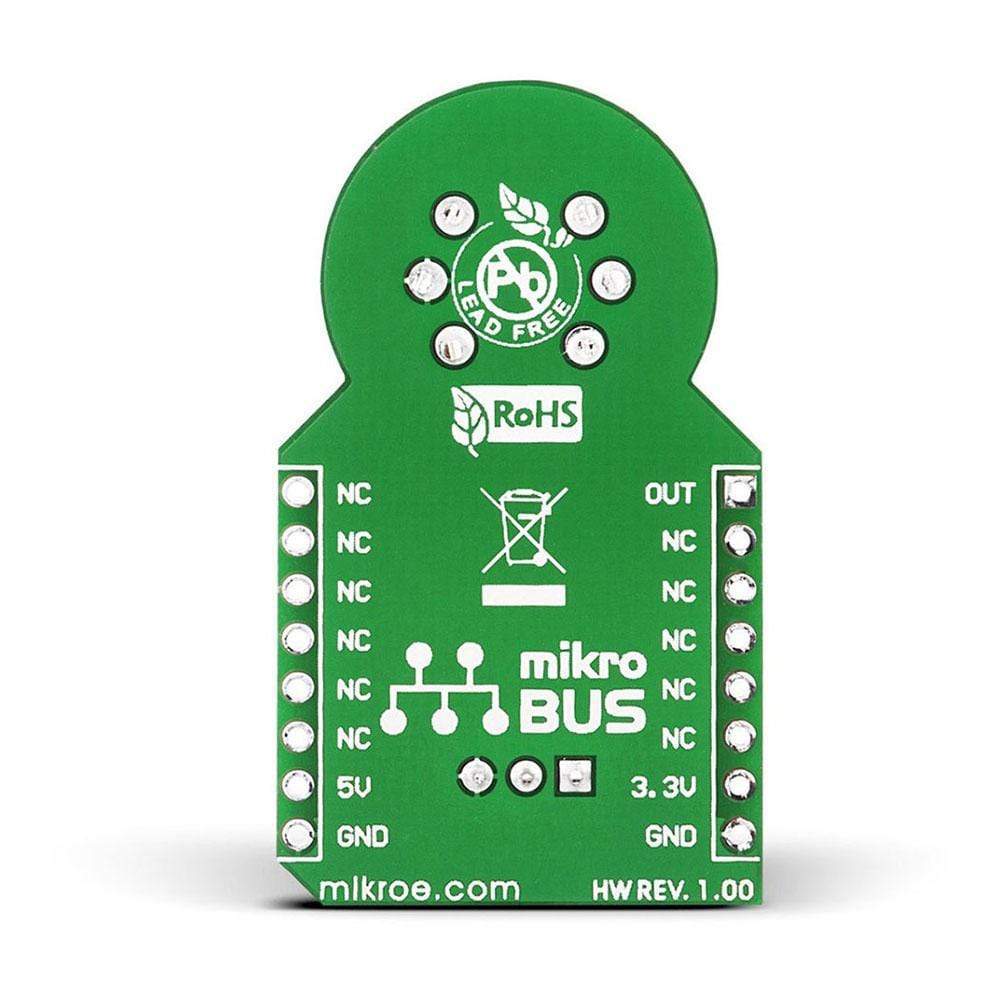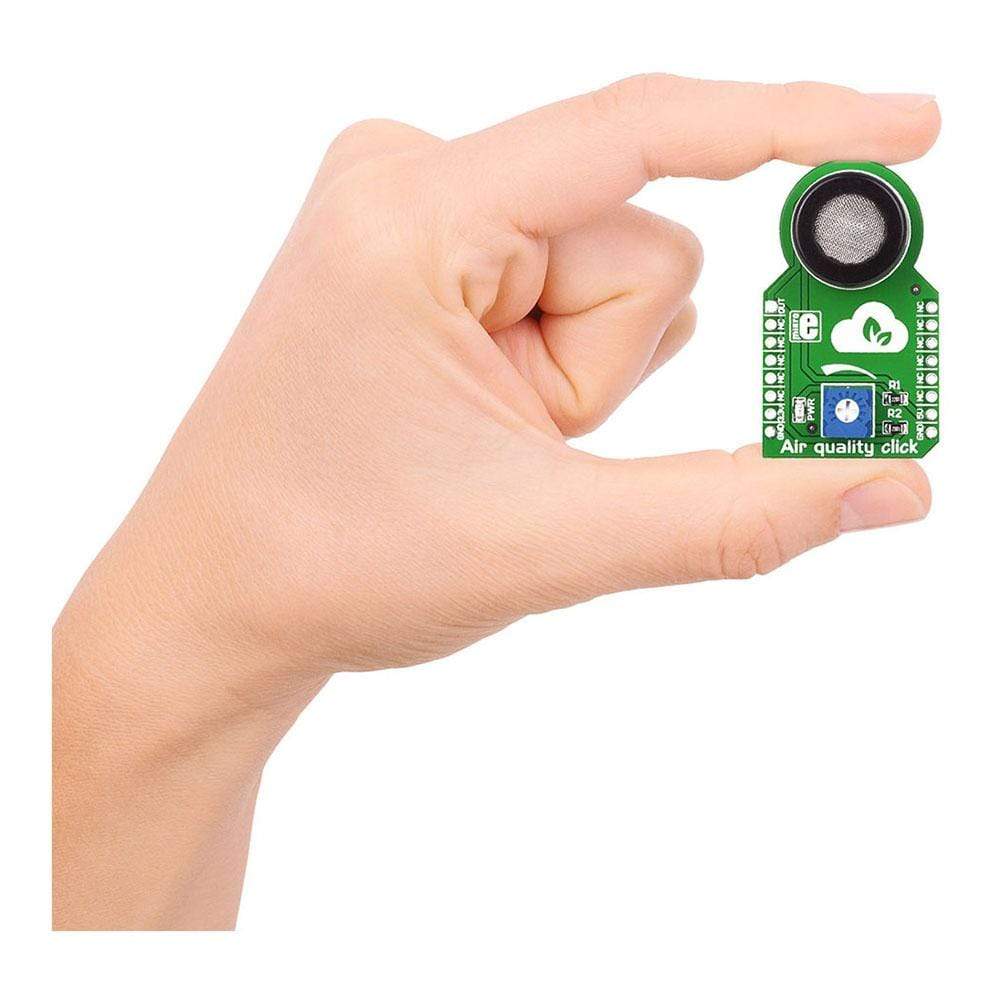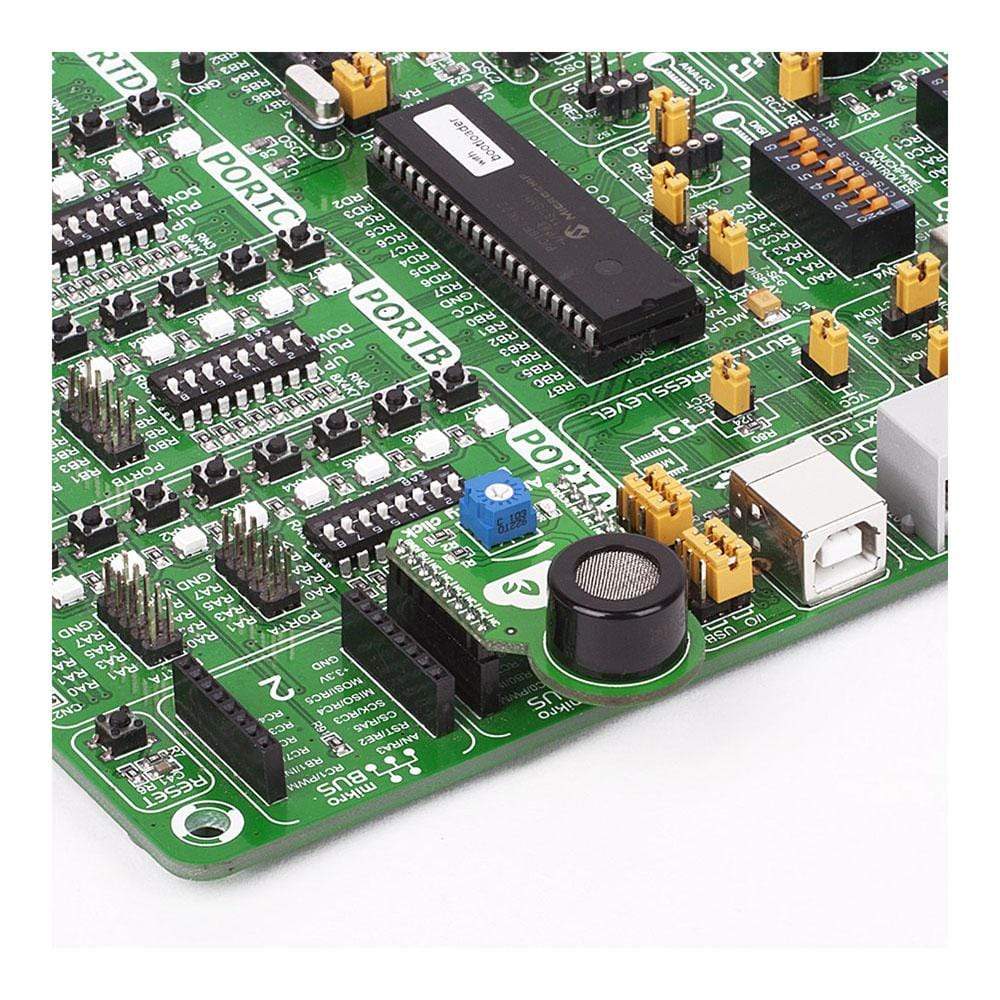



Overview
The Air Quality Click Board™ features the MQ-135 gas sensor in its design for measuring the air quality in apartments, homes and offices. This add-on board helps you detect poisonous gases like ammonia (NH3), nitrogen oxides (NOx), benzene, CO2, smoke and others that harm the air quality. The Air Quality Click Board™ is equipped with a calibration potentiometer and a power indicator LED. It also has got a MikroBUS host socket and two jumpers. The MQ-135 sensor features a gas sensing layer constructed of tin dioxide which is an inorganic compound with the formula SnO2. Tin dioxide is known to have lower conductivity in clean air.
As the level of pollution increases in the air, the conductivity rises too. You can calibrate the Air Quality Click Board™ for the environment by adjusting the load resistance of the sensor circuit. As the concentration of the target air changes, the resistance of the sensor component also gets changed.
Downloads
The Air Quality Click Board™ is a simple solution for adding a high sensitivity sensor for detecting a variety of gases that impact air quality in homes and offices. It carries an MQ-135 sensor. The click is designed to run on a 5V power supply. It communicates with the target microcontroller over the AN pin on the mikroBUS™ line.
Detecting Gases
The Air Quality Click Board™ is suitable for detecting ammonia (NH3), nitrogen oxides (NOx) benzene, smoke, CO2 and other harmful or poisonous gases that impact air quality. The MQ-135 sensor unit has a sensor layer made of tin dioxide (SnO2), an inorganic compound that has lower conductivity in clean air than when polluting gases are present.
Calibration Potentiometer
To calibrate the Air Quality Click Board™ for optimum performance, use the onboard potentiometer to adjust the load resistance on the sensor circuit.
Key features
- MQ-135 sensor
- SnO2 gas sensing layer
- Interface: AN
- 5V power supply
| General Information | |
|---|---|
Part Number (SKU) |
MIKROE-1630
|
Manufacturer |
|
| Physical and Mechanical | |
Weight |
0.03 kg
|
| Other | |
Country of Origin |
|
HS Code Customs Tariff code
|
|
EAN |
8606015075457
|
Warranty |
|
Frequently Asked Questions
Have a Question?
Be the first to ask a question about this.




